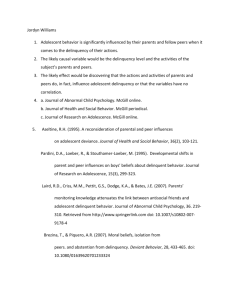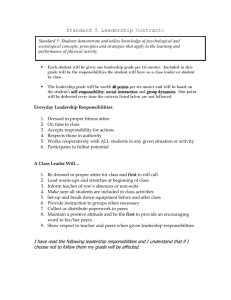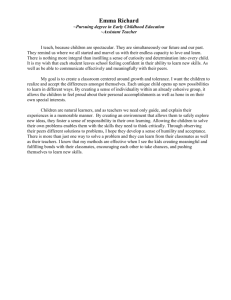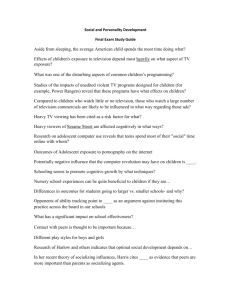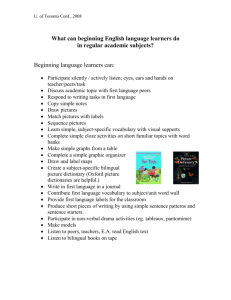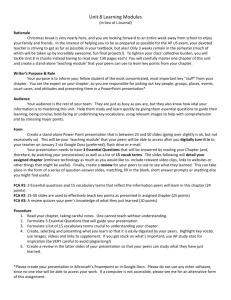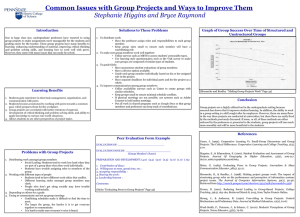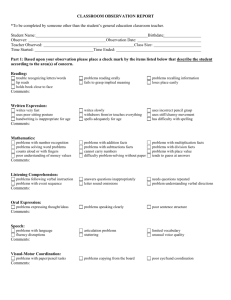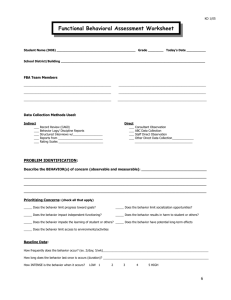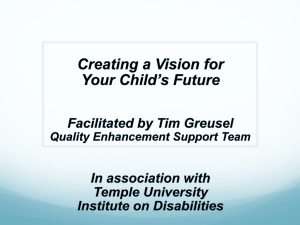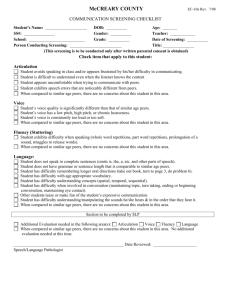Core talks_East Africa_ Presentation for the NGO workshop
advertisement
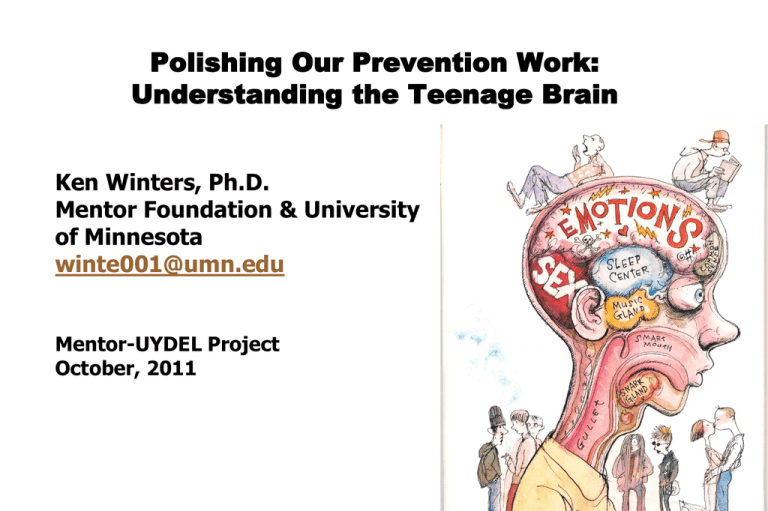
Polishing Our Prevention Work: Understanding the Teenage Brain Ken Winters, Ph.D. Mentor Foundation & University of Minnesota winte001@umn.edu Mentor-UYDEL Project October, 2011 Maturation Occurs from Back to Front of the Brain Images of Brain Development in Healthy Youth (Ages 5 – 20) Earlier: Motor Coordination Emotion Motivation Later: Judgment Blue represents maturing of brain areas Source: PHAS USA 2004 May 25; 101(21): 8174-8179. Epub 2004 May 17. Implications of Brain Development for Adolescent Behavior reward incentives > perception of consequences Brain Development May Reveal These Tendencies (Dahl, 2004) • Preference for …. 1. physical activity 2. high excitement and rewarding activities 3. activities with peers that trigger high intensity/arousal 4. novelty • Less than optimal.. 5. control of emotional arousal 6. consideration of negative conseq. • Greater tendency to… 7. be attentive to social information 8. take risks and show impulsiveness Implications for Maximizing Effective Prevention • Risk taking is normal • Shape it toward healthy, pro-social activities • Risk taking is influenced by emotional and contextual, not cognitive, factors • Teach good decision making when faced with typical emotional and contextual situations • Teach rules is not sufficient; youth have a good understanding of harm and risk • Use peers and parents as change agents Importance of Peers • Several reasons to focus on peers as an agent of change • Peer influences may be stronger than parental influences • One of the strongest risk factors for drug use and delinquency: peer drug use and delinquency • Peer-led prevention programs tend to be more effective than programs that do not involve peers as change agents Prevention Smart Parents www. prevention-smart.org Importance of Parents • Parents still have a major role in the health and wellbeing of a young person. • Parent role moves from being the pilot, to being more like the air traffic controller Parents are Important P A R E N T = Promote activities that capitalize on the strengths of the developing brain. = Assist children with challenges that require planning. = Reinforce their seeking advice from adults; teach decision making. = Encourage lifestyle that promotes good brain development. = Never underestimate the impact of a parent being a good role model. = Tolerate the “oops” behaviors due to an immature brain. THANK YOU! winte001@umn.edu Importance of Teaching Skills for the Developing Adolescent Brain • impulse control • “second” thought processes • social decision making • dealing with risk situations • taking healthy risks
